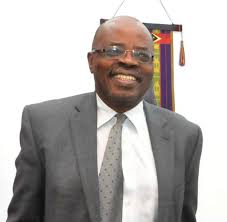Political scientist and lawyer, Professor Babafemi Badejo, has said the Joint Admissions and Matriculation Board’s (JAMB) 150 cut-off mark should not be considered a definitive measure of a student’s academic potential.
Badejo, a former Deputy Special Representative of the United Nations Secretary-General for Somalia, made this known during a telephone interview on Wednesday in Lagos.
JAMB had on Tuesday announced 150 as the minimum score required for admission into Nigerian universities for the 2025–2026 academic session. The decision followed the 2025 Policy Meeting on Admissions, held at the Bola Ahmed Tinubu International Conference Centre in Abuja, with participation from tertiary education stakeholders.
“It should be made clear that one examination does not determine the academic worth of an individual,” he said. “This is more so the case when, as a matter of fact, many universities seek an average of the JAMB result with performance at either the WAEC or NECO results. This also goes in line with the performance at a post-UTME result in deciding who gets admitted.”
He observed that the general quality of students being admitted into universities had declined over time, attributing the trend to deeper systemic issues within the education sector.
“This situation is a reflection of several underlying factors, including the quality of education at the lower levels of Nigeria’s educational system, as well as the remuneration of teachers at those levels,” he noted. “This situation not only leaves very little funding for the essential infrastructure needed in education, it also pushes many university-level lecturers to seek alternative sources of income.”
According to him, this scenario hampers the intellectual and moral development of students.
Badejo also emphasised the need to expand university capacity in line with the country’s population growth.
A targeted expansion of facilities in select universities could allow for higher admissions while maintaining quality, by leveraging the benefits of economies of scale, he said.
(NAN)


